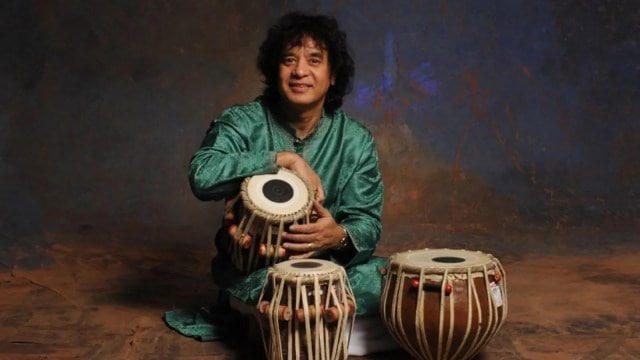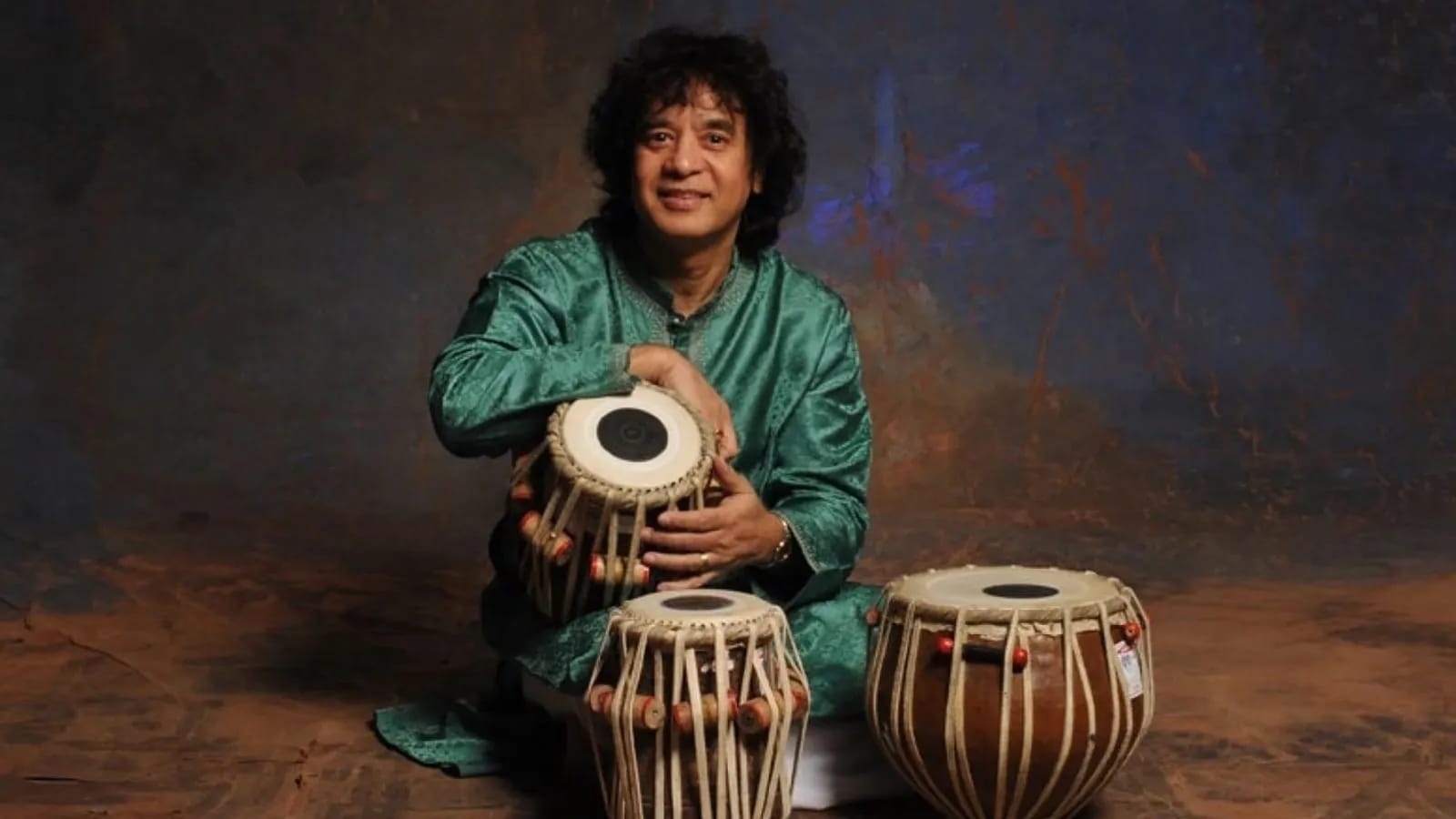

Aneesh Pradhan
Dec 19, 2024 07:22 IST First published on: Dec 19, 2024 at 07:22 IST
It is not uncommon for Hindustani music aficionados to grieve the loss of a senior musician by stating that the loss marks the passing of an era. The comment is driven by a respect for tradition and a sense of reverence. However, this appears superficial in many cases, as the body of work left behind by that musician is not truly epochal. The observation would be most appropriate in the case of renowned tabla maestro Zakir Hussain, who left us on December 16. His contribution to the world of tabla, to Hindustani music, and to the various musical dialogues across music systems that he initiated or was a part of, is unparalleled. Indeed, there have been great tabla players in every generation, but the content of what he expressed through the instrument and the manner of presentation is incomparable. Fortunately, much of his work is documented, but it needs to be analysed for us to comprehend its magnitude and the breadth of his vision. That will have to wait because musicians in India and across the world are struggling to come to terms with his sudden departure.
For students of music like me, Zakir Hussain and his music have been part of our musical reality since a very early age. I still remember the first time I witnessed a performance that featured him along with his father, guru and celebrated tabla maestro Alla Rakha. I was seven or eight years old. Over the years, I had more opportunities to hear him as a soloist and as an accompanist to Hindustani instrumental and vocal music and Kathak. These and other instances when he performed in intercultural musical ensembles like the path-breaking Shakti, are occasions that form a vital part of my musical memory.
Many music lovers today may not be aware of the context in which his father established himself as an important tabla player in Mumbai (then Bombay) after the 1950s. Maharashtra then was firmly rooted in the tabla traditions of the Delhi, Ajrada, Lucknow, and Farrukhabad styles. Alla Rakha arrived in Delhi from Lahore and moved to Mumbai, gradually captivating audiences with a style of playing that was unique in its choice of vocabulary and rhythmic perspective. He gained recognition in an atmosphere that was not the most inviting. It was this style that Zakir Hussain imbibed and took forward in a manner that seemed as if it always existed parallel to others mentioned earlier. His father’s style of accompaniment was also novel and he went on to take it to new heights. However, the experience that Zakir Hussain gained while accompanying greats like world-renowned sitar exponent Ravi Shankar and sarod maestro Ali Akbar Khan, and later with santoor wizard Shivkumar Sharma and bansuri virtuoso Hariprasad Chaurasia, evidently lent opportunities for him to experiment in the sphere of tabla accompaniment to instrumental music. His musical conversations with such celebrated artistes gave a fresh colour to styles of tabla accompaniment. This captivated the imagination of tabla players of my generation.
Despite his experiments with the tabla at multiple levels, Zakir Hussain assimilated compositions from the traditional solo repertoire of gharanas other than the Punjab gharana to which his father belonged. His penchant for experimentation and reinvention led him to present these compositions in a way that came to be associated only with him. A milestone of sorts in the way traditionalists changed the way they regarded his solo presentations was their appreciation for his recital several years ago at the Chhabildas School in Dadar, Mumbai. Present at this concert were many senior and junior tabla players from Mumbai. His inclusion of traditional solo repertoire from different gharanas with the characteristic twist that he gave to these compositions came as a complete surprise to these listeners.
Perhaps, Hussain’s courage to experiment and openness to absorb influences from varied sources in India and overseas may not have been possible if he had not migrated to the US where he interacted with numerous leading musicians from the world of jazz. His travels resulted in several recording projects and live concerts involving musicians from various non-Indian musical systems.
The national and international awards bestowed on him are proof of the worldwide recognition he has received. Alongside these, was the public recognition he received after he was featured in advertisements — the sight of a flight case containing a tabla would elicit cries of “Zakir Hussain” at airports and stations. Like his father, he too composed for feature films. He even acted in the Merchant Ivory film Heat and Dust and in Saaz directed by Sai Paranjpe.
Zakir Hussain was not one to be stopped by criticism of which he had a fair share. His inventiveness had led to explorations with tabla’s vocabulary, the tonal palette of the instrument, its technique, all of which were presented with an uncanny command over rhythmic intricacies that were part of his musical persona and were equally informed by the nuances of the Carnatic system. During the Covid lockdowns, he addressed issues related to the instrument on social media. Reaching out to the audience came naturally to him,
In recent years, he had chosen to lead different sets of musicians in performance, some highlighting rhythmic exchanges and others focusing on Hindustani-Carnatic dialogues.
A detailed musical analysis of his work and its impact on musicians will surely be undertaken. But when we celebrate his life and work, we will need to understand and appreciate his creative urge and spontaneity, rather than imitate him. For, imitation is a gross injustice to the memory of geniuses like him who spent their lives constantly breaking new ground.
Pradhan is a tabla exponent, teacher, composer and scholar of Hindustani classical music
Why should you buy our Subscription?
You want to be the smartest in the room.
You want access to our award-winning journalism.
You don’t want to be misled and misinformed.
Choose your subscription package


